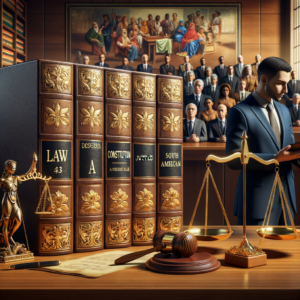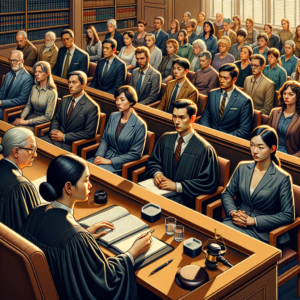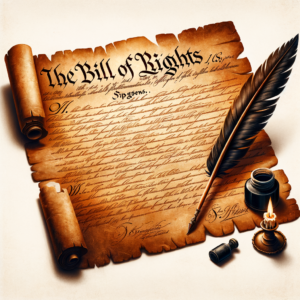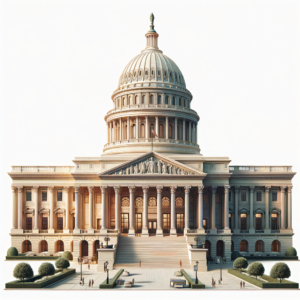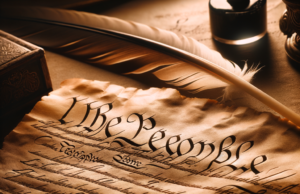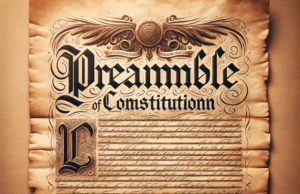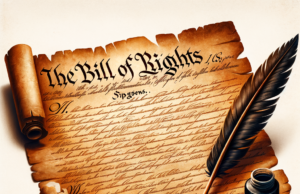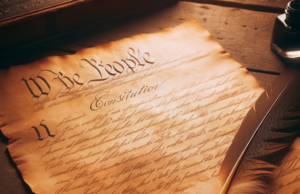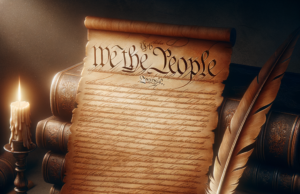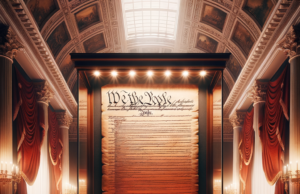Unraveling the Constitution: The Shocking Truth Behind Interpretation

The United States Constitution, a document that has stood the test of time, serves as the bedrock of American law and governance. However, its interpretation has been a subject of intense debate and scrutiny, revealing the complexities and nuances that arise when applying a centuries-old text to contemporary issues. This article delves into the multifaceted nature of constitutional interpretation, exploring its historical context, landmark Supreme Court cases, and the ongoing debates that shape our understanding of this foundational document.
Understanding the Constitution: A Foundation of American Law and Governance
The Constitution of the United States, ratified in 1788, is not merely a legal document; it is a symbol of the nation’s values and aspirations. Comprising a preamble and seven articles, it establishes the framework for the federal government, delineates the powers of its branches, and enshrines the rights of citizens. As the supreme law of the land, the Constitution provides the foundation for American democracy, ensuring that governance is conducted within a system of checks and balances. Its significance extends beyond legal parameters, influencing the social, political, and cultural fabric of the nation. However, the Constitution’s language is often broad and open to interpretation, leading to diverse understandings that reflect the evolving nature of American society.
The Role of Interpretation: How Context Shapes Constitutional Meaning
Constitutional interpretation is a dynamic process that involves deciphering the meaning of the text in light of contemporary values, societal norms, and historical context. The framers of the Constitution crafted a document that was intentionally vague in certain areas, allowing for flexibility in its application. This ambiguity has led to various interpretative approaches, including textualism, which emphasizes the ordinary meaning of the words at the time of ratification, and purposivism, which considers the broader objectives behind the text. The context in which the Constitution is interpreted can significantly influence legal outcomes, as judges and legal scholars grapple with applying an 18th-century document to 21st-century issues, such as digital privacy, healthcare, and civil rights.
Key Supreme Court Cases That Redefined Constitutional Interpretation
Throughout American history, landmark Supreme Court cases have played a pivotal role in shaping constitutional interpretation. Cases such as Marbury v. Madison (1803) established the principle of judicial review, allowing the Court to invalidate laws that contradict the Constitution. Brown v. Board of Education (1954) redefined the interpretation of the Equal Protection Clause, declaring racial segregation in public schools unconstitutional. More recently, Obergefell v. Hodges (2015) expanded the understanding of marriage equality under the Constitution. Each of these cases not only set legal precedents but also reflected the changing attitudes and values of society, demonstrating how the Supreme Court acts as both an interpreter and a catalyst for constitutional evolution.
The Influence of Historical Context on Constitutional Understanding
The historical context in which the Constitution was drafted and subsequently interpreted cannot be overstated. The framers were influenced by Enlightenment ideals, their experiences with British rule, and the desire to create a more perfect union. As societal norms and values have evolved, so too has the interpretation of the Constitution. For instance, the abolition of slavery, the women’s suffrage movement, and the civil rights movement have all prompted reexaminations of constitutional rights and protections. Understanding the historical backdrop of constitutional amendments and judicial decisions is crucial for comprehending the current landscape of American law, as it reveals the ongoing struggle to align the Constitution with the principles of justice and equality.
Contemporary Debates: Originalism vs. Living Constitution Perspectives
In contemporary legal discourse, two dominant schools of thought have emerged regarding constitutional interpretation: originalism and the living Constitution perspective. Originalists argue that the Constitution should be interpreted based on the original intent of the framers and the text’s meaning at the time of ratification. This approach seeks to limit judicial discretion and maintain a consistent application of the law. Conversely, proponents of the living Constitution perspective contend that the Constitution is a dynamic document that must adapt to the changing needs and values of society. This debate is not merely academic; it has significant implications for landmark issues such as abortion rights, gun control, and healthcare, as differing interpretations can lead to vastly different legal outcomes.
The Future of Constitutional Interpretation: Challenges and Implications Ahead
As society continues to evolve, the future of constitutional interpretation faces numerous challenges and implications. The increasing polarization of political ideologies, coupled with the rise of technology and globalization, raises questions about how the Constitution can effectively address modern issues. Furthermore, the composition of the Supreme Court plays a critical role in shaping interpretative approaches, as justices bring their own philosophies and biases to the bench. The ongoing debates surrounding originalism and the living Constitution will likely persist, influencing not only legal outcomes but also the broader societal discourse on rights, liberties, and governance. As we navigate these complexities, it is essential to recognize that the Constitution remains a living document, one that requires continual reflection and reinterpretation to uphold the principles of democracy and justice.
The interpretation of the Constitution is a complex and evolving process that reflects the dynamic nature of American society. As we grapple with contemporary issues, it is imperative to engage in informed discussions about how best to interpret this foundational document. Understanding the historical context, landmark cases, and differing philosophical approaches will enable us to navigate the challenges ahead and ensure that the Constitution continues to serve as a guiding light for justice and equality in the United States.



